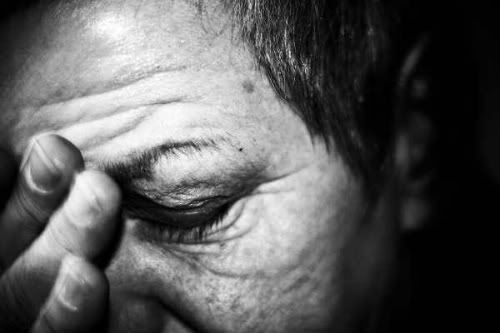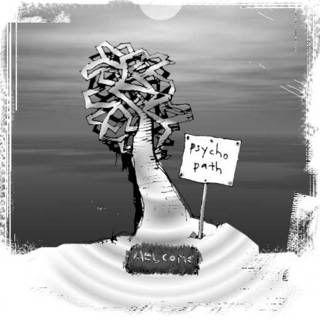There comes a time in the life of many or us realize that we must evolve in order to survive and thrive in the days, months, and years ahead. The skills and coping mechanisms that propelled us to our present crossroads will not suffice for the rigors of the road ahead. Ideally, we realize this before someone beats us upside the head with our deficiencies, and advises us to evolve, now, or else. With the benefit of time, we enjoy the luxury of introspection and self-direction.
For some of us, this realization comes in childhood when we begin to understand that the world for which our parents prepared us is a much nicer and simpler place than the world we actually inhabit. My parents, for example, felt that most challenges in life could be overcome by intellect and critical thinking, grounded in a solid appreciation of music, literature, and art.
All that’s of very little use, however, when the schoolyard bully extorts your milk money, day after day, or when the high-school bully demands that you orient your exam paper so that they can cheat off it. It’s also of little use when the demons of depression take hold of your youthful spirit and fill you with suicidal thoughts.
When we’re old enough to see where our life is headed, we’re also old enough to begin our own preparations. Under the critical eye of a strict and controlling parent, however, we learn to be circumspect in our evolution. One by one, we pull the threads from the tapestry woven by our parents and teachers, replacing it with more utilitarian or decorative that better suits our character and our destiny.
Over time, the entire tapestry evolves to something vastly different. On any given day, though, there’s little evidence of any change at all. Our machinations go undiscovered. Yet we’ve slipped our collars, shaken the dust out of our fur, and left that back yard far behind. We’re off on our own now, and ready for the scary world out there.
In my case, the evolution was from book smarts to street smarts, from sadness and fear to wit and grit, from follower to leader. It has taken quite a long time, half a century so far. admittedly not long in geologic time, but certainly a slow transition in human time. I’m still a work in progress… I hope. I’m still learning how to be a grandparent, a business owner, a southerner, and a retiree.
I’m grateful to whatever people and forces sparked my desire to make the changes that have brought me this far inspired me to continue the journey of self actualization. If a journey of a thousand miles begins with a single step, surely we owe some credit to anyone who helped us to take that step.

 We all experience anxiety from time to time. In “normal” amounts, it is a healthy feeling which warns us of potential dangers or motivates us to get things done. A moderate level of anxiety may in fact
We all experience anxiety from time to time. In “normal” amounts, it is a healthy feeling which warns us of potential dangers or motivates us to get things done. A moderate level of anxiety may in fact  I am sharing this diary about pediatric bipolar disorder (which is not listed separately from BD in the DSM) because I think most educated people have at least a rudimentary idea of what bipolar disorder is. Pediatric bipolar disorder is less talked about because it is less accepted and therefore more controversial. This makes sense for plenty of reasons. For one thing, the criteria being used to diagnose it are often different or fewer than those formally listed in the DSM. Many people believe that bipolar disorder never fully manifests until late adolescence or early adulthood, and will not accept a “pediatric” form of the disorder as being valid. Further, it is very controversial because of the generally accepted notion that bipolar disorder requires pharmacological intervention, and the medications used to treat it can cause a plethora of adverse cognitive and physiological side effects. The idea of giving these medications to children in their formative years is disturbing to many (including myself, due to intimate personal understanding of how dangerous these medications can be even for adults). Then, of course, there is the argument that bipolar disorder may be over-diagnosed, and that to label a child with such a debilitating, chronic illness is inappropriate.
I am sharing this diary about pediatric bipolar disorder (which is not listed separately from BD in the DSM) because I think most educated people have at least a rudimentary idea of what bipolar disorder is. Pediatric bipolar disorder is less talked about because it is less accepted and therefore more controversial. This makes sense for plenty of reasons. For one thing, the criteria being used to diagnose it are often different or fewer than those formally listed in the DSM. Many people believe that bipolar disorder never fully manifests until late adolescence or early adulthood, and will not accept a “pediatric” form of the disorder as being valid. Further, it is very controversial because of the generally accepted notion that bipolar disorder requires pharmacological intervention, and the medications used to treat it can cause a plethora of adverse cognitive and physiological side effects. The idea of giving these medications to children in their formative years is disturbing to many (including myself, due to intimate personal understanding of how dangerous these medications can be even for adults). Then, of course, there is the argument that bipolar disorder may be over-diagnosed, and that to label a child with such a debilitating, chronic illness is inappropriate. 
